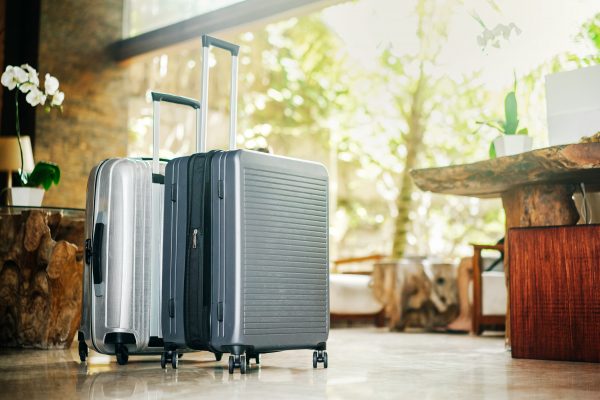Last updated July 15, 2024
There’s a growing “greenwashing” issue in the ecotourism industry that hosts the potential to do more harm than annual spring breakers.
With the growing trend of ecotourism and sustainable travel come well-intended resorts and travelers with the mindset to enjoy the pleasures of the destination while looking to offset the negative impact that travel inevitably has on our environment.
As any marketer will tell you, however, with any growing trend there is a potential to earn greater profit. Thus, the trend of greenwashing is increasing in the ecotourism industry among hotels and travel brands to capitalize on the category’s growth.
What Is Ecotourism?
According to The International Ecotourism Society, the improvisatory definition of ecotourism means “to travel in ways that preserve the environment and protect places for future generations.”
The objective of ecotourism is to minimize the impact brought about by tourism on the environment. Ecotourists aspire to travel sustainably and educate themselves along the way. You can be both a traveler and an ecotourist.
More often than not, both travelers and ecotourists visit destinations that will invest in their holistic health.
What Is Greenwashing?

According to an article in Business News Daily, greenwashing is “when a company purports to be environmentally conscious for marketing purposes but actually isn’t making any notable sustainability efforts.”
Business News Daily further details that companies can greenwash even when they have good intentions. However, it all comes down to the output and actions.
Here’s a fictional example of greenwashing. Imagine you’re under the influence when you’re purchasing dairy-free milk from a store. It claims to have used organic sprouted nuts for pressing. Great intentions, good marketing.
Come to find out that the manufacturer isn’t fully aware that the farmers are not selling him nuts that have been sourced organically. On top of this, the farmer’s manufacturing plant happens to be sprinkling a drip of cow milk in the containers. Even though the good intentions are there, you’d probably feel a bit duped by the company.
And, if you’re sensitive to dairy, like myself, then you probably would have a stomachache to go along with it. Not a good combination. This can instantly destroy a customer’s loyalty and brand identity.
Global Issues

Greenwashing doesn’t happen in just product marketing. It can happen across multiple different consumer categories, especially in the highly marketable tourism industry.
Hotels, tour operators, travel agents and tourism boards, to name a few, can all host potential entry points for inducing false claims for ecotourism and sustainability.
Claiming to do good for the ecosystem while actually not following through with it can do immense harm for both the environment and the industry at large. Further, with a lack of global standards in place, it’s very difficult to define what is considered eco-conscious and to what level.
For example, one hotel may boast to be eco-friendly, but simply remove plastic straws from their properties. Good first step. But how about the plastic cups, disposal of food, overuse of linens and pool towels, waste being washed into the oceans and pollution from on-site vehicles?
Without standards and regulations in place, sustainable actions are a very tricky cat to nail down into a corner.
Indeed, there are organizations such as the Global Standards for Sustainable Travel and Tourism which hosts criteria to meet certain levels of sustainability in travel and certifications.
Yes, there are more articles than ever before raising a voice about ecotourism and travel tips to counter climate change. I question, though, who’s actually regulating this? Or, enforcing?
With little funding, especially on an international level, it’s a very hard claim and criteria to enforce.
What Travelers Can Do About Greenwashing

Be that as it may, not all is hopeless in the ecotourist world. One of the top recommendations is to get informed, do the educational work before booking, and don’t take marketing at face value.
The choice is in your own hands.
Top ecotourism tips for travelers:
- Read beyond the hotel website. Inquire with reviews or word of mouth from other travelers who have been there or visited.
- Follow and read from eco-focused travelers who are dedicated to truth-telling and advocating for authentic ecotourism.
- Be critical of “green” certifications and awards showcased—certifications are good, but actions are great.
- Ask poignant questions before booking with the hotel, agent or concierge.
- Ask poignant questions when at the hotel and resort as well, making informed choices while on the property.
- Choose destinations that are not over-touristed. Regulations can be far and fewer amidst profit margins and mass-scale chain hotel bottom lines.
Is Ecotourism a Greenwash?
Small choices and questions from one traveler won’t counter the full effect of greenwashing.
You do have the power to invoke insight—a voice—and change perspective by bringing awareness to the hotel, agent or tour, and to fellow travelers around you.
Have you seen examples of greenwashing in travel before? What are your thoughts on this growing concern and, more importantly, what we can do about it?
About Vacayou
At Vacayou [pronounced VACAY – YOU], we believe that travel has the power to change lives. The power to revive, rejuvenate and redirect your inner wellness warrior. And that’s why we’re here. Vacayou brings the world of wellness travel to you!
No matter how far or how adventurous, our team scours the globe to curate the best in wellness travel. However, the booking process can often be time-consuming and complicated. We’ve made it much easier to search, discover, and book wellness and active vacations. With Vacayou’s Instant Book, your dream wellness getaway is now just one click away.
Start the trip of your lifetime today, with Vacayou. We are here to help create a healthier global community through wellness and active travel.
To keep up with the latest wellness trends and experiences, be sure to subscribe to our newsletter.


